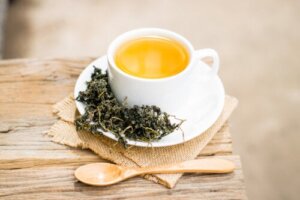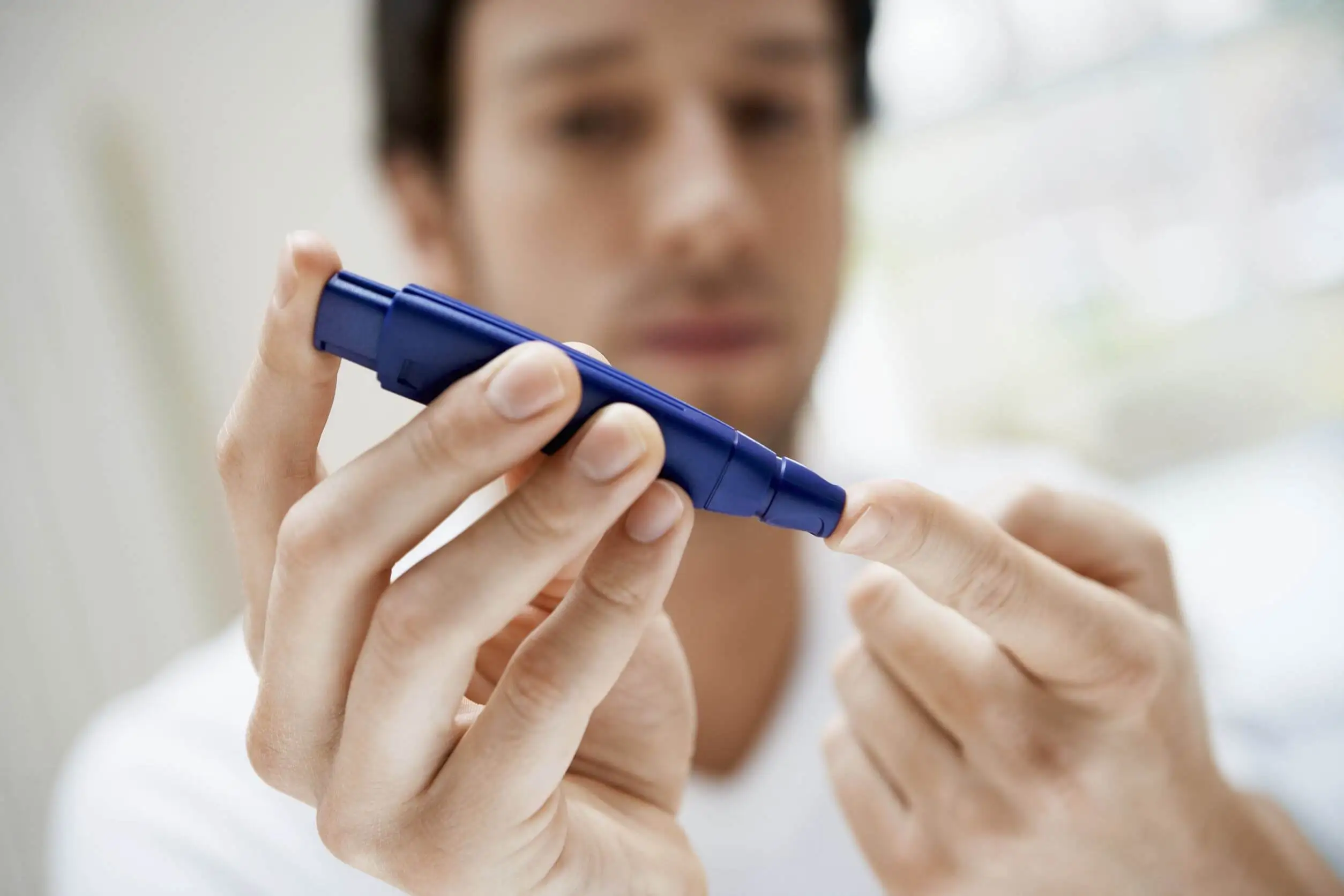What Is Jiaogulan and What Are Its Benefits?


Reviewed and approved by the doctor Leonardo Biolatto
In traditional Chinese medicine, jiaogulan (Gynostemma pentaphyllum) has been valued for its potential to promote well-being and improve health. In particular, this vine is characterized by its abundant content of bioactive compounds, associated with good metabolic and nervous system health.
As reported in a publication in the journal Molecules, many of its properties are due to its gipenoside content. These are a series of triterpene saponins that have antiproliferative, antioxidant, and adaptogenic qualities. What are their main applications? We’ll take a look at them in the following article.
What is jiaogulan?
Jiaogulan, whose scientific name is Gynostemma pentaphyllum, is a climbing plant that belongs to the Cucurbitaceae family. It’s native to Asia, specifically to countries such as China, Korea, Japan, and Vietnam. It’s also known as yiaogulan, “southern ginseng”, or the “longevity plant”.
Its first applications in traditional medicine date back to the 15th century in China. Since then, its properties have been used to promote wellness, especially in cases of diabetes, high cholesterol, and obesity, among other conditions.
We think you may also enjoy reading this article: An Ancient Chinese Remedy to Lower Cholesterol
The main uses and benefits of jiaogulan
Like other herbs used in traditional Chinese medicine, jiaogulan is used as a complement to improve health in the face of certain chronic diseases. Despite this, there’s still not enough scientific research to support its properties. Therefore, its use is recommended with caution.
Jiaogulan for diabetes
One of the main benefits of jiaogulan has to do with lowering blood glucose levels. According to a clinical trial reported in Hormone and Metabolic Research, consuming jiaogulan tea improves blood glucose control and insulin sensitivity.
A subsequent study shared in the Journal of Nutrition and Metabolism reported that jiaogulan tea has the potential to improve insulin response. Therefore, it supports the health of patients with type 2 diabetes.
More recent research exhibited similar findings. In the animal study, those fed a jiaogulan extract showed lower sugar levels in fasting tests. However, more evidence is needed.

Controlling body weight
Jiaogulan supplements aren’t a miracle treatment against overweight and obesity. It’s important to remember that weight loss requires a multidisciplinary approach, especially as far as diet is concerned.
Having made this clear, it’s worth noting that this herbal remedy has exhibited positive effects for body weight loss. A study shared through the Journal of Human Nutrition and Dietetics determined that oral consumption of an extract of this plant improves body composition in overweight men and women.
Jiaogulan for high cholesterol
In Oriental medicine, jiaogulan and its derivatives have been used as a supplement to lower high cholesterol levels. However, studies supporting these properties are limited.
The hypothesis suggests that its flavonoid, saponin, and phytosterol content is behind this effect. Even so, research has been done on animals and in a laboratory setting. There are no concrete studies in humans claiming that this plant can improve the lipid profile.
Stress relief
Both jiaogulan extract and jiaogulan tea are exploited for their benefits in combating states of stress. To be more precise, it’s recognized as an herb with adaptogenic qualities that stabilizes the adrenal glands to decrease physical and mental responses resulting from stress.
A study conducted in South Korea, and reported in Phytomedicine, evidenced lower levels of stress in people who consumed an extract of jiaogulan leaves compared to the placebo group. The supplement was given for 8 weeks.
The possible side effects of jiaogulan
For most healthy adults, jiaogulan is considered safe. However, its consumption has to be moderate, according to the supplement manufacturer’s directions. In some, it causes sensitivity reactions, with nausea, digestive upset, and diarrhea.
Since the evidence is still limited, it’s unknown how it may act or interfere in the presence of certain conditions. Therefore, its use is discouraged in the following cases:
- Autoimmune diseases (such as lupus, multiple sclerosis, rheumatoid arthritis, etc.)
- Circulatory problems or diseases that affect blood clotting
- Patients undergoing treatment with anticoagulants, antidiabetics, and antidepressants
- Women who are pregnant or breastfeeding
- People about to undergo surgery
- Children
In general, it is recommended to consume the supplements of the plant after ingesting food. When taken on an empty stomach, it can irritate the stomach and even lead to other adverse effects, such as fatigue, dizziness, sweating, or tachycardia. If so, it’s best to consult a doctor.

Discover more: Antidiarrheal Medication: Everything You Need to Know
How to take jiaogulan
Right now, jiaogulan is available in presentations such as teas, powders, capsules, and extracts. These are usually found in herbal or health food stores. It’s essential that you follow the consumption recommendations given by the manufacturer and don’t exceed the dosage.
How to prepare it as an infusion
Ingredients
- 5 grams of dried and powdered jiaogulan
- 250 milliliters of water
How to make it
- Bring the water to a boil and add the dried jiaogulan.
- Cover the drink and let it steep at room temperature for 10 minutes.
- After this time, strain and consume.
- You can have up to 2 cups per day (500 ml).
What to remember about jiaogulan
Exploring the remedies of traditional Chinese medicine, you can find references to jiaogulan. It’s a plant widely used as a natural adaptogen, suitable for combating stress and endocrine system problems.
However, to date, there’s not enough evidence to affirm its safety and efficacy. Therefore, it shouldn’t be a first-choice treatment. Experts even recommend consulting a doctor before starting to consume it.
All cited sources were thoroughly reviewed by our team to ensure their quality, reliability, currency, and validity. The bibliography of this article was considered reliable and of academic or scientific accuracy.
- Zhang, Y., Shi, G., Luo, Z., Wang, J., Wu, S., Zhang, X., & Zhao, Y. (2021). Activity Components from Gynostemma pentaphyllum for Preventing Hepatic Fibrosis and of Its Molecular Targets by Network Pharmacology Approach. Molecules (Basel, Switzerland), 26(10), 3006. https://doi.org/10.3390/molecules26103006
- Huyen VTT, Phan DV, Thang P, et al. Antidiabetic effect of gynostemma pentaphyllum tea in randomly assigned type 2 diabetic patients. Horm Metab Res. 2010;42(05):353-357. doi: 10.1055/s-0030-1248298
- V. T. T. Huyen, D. V. Phan, P. Thang, N. K. Hoa, C. G. Östenson, “Gynostemma pentaphyllum Tea Improves Insulin Sensitivity in Type 2 Diabetic Patients”, Journal of Nutrition and Metabolism, vol. 2013, Article ID 765383, 7 pages, 2013. https://doi.org/10.1155/2013/765383
- Wang, Z., Zhao, X., Liu, X., Lu, W., Jia, S., Hong, T., Li, R., Zhang, H., Peng, L., & Zhan, X. (2019). Anti-diabetic activity evaluation of a polysaccharide extracted from Gynostemma pentaphyllum. In International Journal of Biological Macromolecules (Vol. 126, pp. 209–214). Elsevier BV. https://doi.org/10.1016/j.ijbiomac.2018.12.231
-
Rao, A., Clayton, P., & Briskey, D. (2021). The effect of an orally‐dosed Gynostemma pentaphyllum extract (ActivAMP®) on body composition in overweight, adult men and women: A double‐blind, randomised, placebo‐controlled study. In Journal of Human Nutrition and Dietetics. Wiley. https://doi.org/10.1111/jhn.12936
- Megalli S, Davies NM, Roufogalis BD. Anti-hyperlipidemic and hypoglycemic effects of Gynostemma pentaphyllum in the Zucker fatty rat. J Pharm Pharm Sci. 2006;9(3):281-91. PMID: 17207412.
- Liu, J., Li, Y., Shi, H., Wang, T., Wu, X., Sun, X., & Yu, L. (Lucy). (2016). Components characterization of total tetraploid jiaogulan ( Gynostemma pentaphyllum ) saponin and its cholesterol-lowering properties. In Journal of Functional Foods (Vol. 23, pp. 542–555). Elsevier BV. https://doi.org/10.1016/j.jff.2016.03.013
- Choi, E.-K., Won, Y. H., Kim, S.-Y., Noh, S.-O., Park, S.-H., Jung, S.-J., Lee, C. K., Hwang, B. Y., Lee, M. K., Ha, K.-C., Baek, H.-I., Kim, H.-M., Ko, M.-H., & Chae, S.-W. (2019). Supplementation with extract of Gynostemma pentaphyllum leaves reduces anxiety in healthy subjects with chronic psychological stress: A randomized, double-blind, placebo-controlled clinical trial. In Phytomedicine (Vol. 52, pp. 198–205). Elsevier BV. https://doi.org/10.1016/j.phymed.2018.05.002
This text is provided for informational purposes only and does not replace consultation with a professional. If in doubt, consult your specialist.








